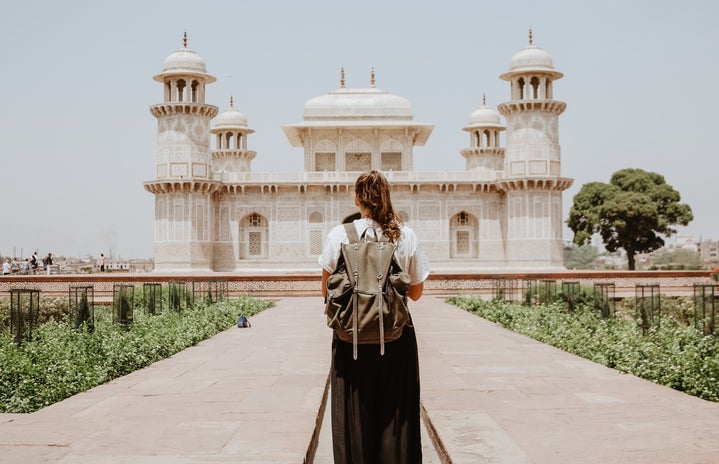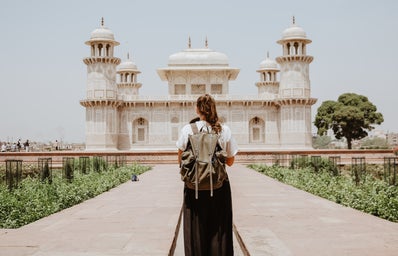After a year of study abroad programs being canceled or postponed due to the COVID-19 pandemic, many universities are opening international study abroad opportunities again. This is amazing news, especially considering the limited opportunities to travel over the past year. If you’re ready to embark on a study abroad adventure, it can feel pretty daunting to find a program that fits your needs and feels safe. Fortunately, there are many programs that can fit your preference and comfort level. If you’re looking for a new adventure, here’s how to pick a study abroad program post-pandemic that works for you. Consider the following areas:

Time and duration
The first decision to make is how long you want to spend abroad. If you’re looking for a quick getaway, consider a spring break or summer program. These programs often range anywhere from one to eight weeks and can provide a quick immersion into the local culture of where you decide to study. Shorter programs also limit the amount of homesickness and culture shock you may go through. If you want a ton of cultural immersion, a semester or year-long program will be perfect for you! Longer programs can give you plenty of time to explore all there is to offer in the city you’re studying in.
Location
Once you know how long you want to study abroad, it’s time to consider where exactly you want to study. This is the most exciting step of the process because you get to spend time daydreaming about how you would feel strolling along the Seine or exploring Machu Picchu. Obviously, there’s a lot more to consider than just local scenery, but choosing your location is the step that really personalizes your program. It enables you to customize all of the details you don’t really think about, like what kind of housing you’ll receive, the people you’ll come in contact with, the local language, and even the weather (trust me, it’s important).
If you’re not set on a specific country yet, start with something simple, like the general environment — for example, do you want urban or rural? After that, think about the type of climate you want. If you’re not a big fan of the cold, you may not enjoy a program in northern Sweden. You can also explore locations that fit your interests or choose a study abroad program that will allow you to visit multiple countries. Start to narrow each of these factors, and you’ll be sure to find a location, or several, that offers everything you want to start looking into!

Response to the pandemic
Not all countries have addressed the pandemic in the same way, and at the moment, some locations may be safer for a study abroad trip than others. When planning future travel, you may want to consider: how did the country actually handle the pandemic? How much of the population is vaccinated, or has the opportunity to receive the vaccine? And if vaccines are not readily available, how comfortable are you being there?
Shelby, a sophomore at Indiana University (Purdue University Indianapolis), tells Her Campus, “COVID-19 had a bit of an impact when it came to choosing my [study abroad] location. In order to feel safe, I preferred to go somewhere there was a mask mandate, and where people were actively being vaccinated,” she says. “Those were my biggest factors when deciding on a location.” Regardless of where you want to travel, be sure to assess your comfort level — this can help you determine which study abroad location is right for you.
Tuition and cost
While it’s not very fun to think about, tuition and cost are super important when deciding which study abroad program to embark on. While studying abroad can be expensive and tuition varies depending on timing and location, cost doesn’t necessarily have to limit your experience. There are thousands of scholarships and grants available to help you cover the cost of programs, along with potential financial aid available from your school, your campus study abroad office, and sometimes even the government of the country you’re traveling to.
Pro tip: many programs have updated their refund policies in light of the pandemic to provide financial security so that students’ scholarships and grants don’t go to waste. Taking advantage of these policies, combined with seeking financial support, can give you the perfect opportunity to save up for your future travel adventures.
Your goals for the program
That’s right — you can’t forget the “study” part of studying abroad! Once you’ve narrowed down your list of programs, consider the personal and professionals experiences you hope to get out of traveling. Do you want to learn a foreign language or take courses specific to your academic major? Are you interested in conducting research or completing a capstone project abroad? Some study abroad programs even include an internship component, or are service-oriented, while others, like the prestigious Fulbright Program, enable you to enroll in courses at world-renowned universities while receiving financial support.
Regardless of your interests, each study abroad program offers unique educational opportunities, and considering your personal and professional goals can be a valuable step in finding the perfect program for you!
As vaccines become more readily available and universities start reopening (or turning to hybrid models), hope is on the horizon for students who want to complete study abroad programs post-pandemic. Taking the leap to study abroad can be a rewarding and fulfilling experience, and it’s important to consider what will make you feel the most excited and comfortable. If you feel both passionate about your program of interest and protected in the country you’re headed to, good news: you may have found your ideal study abroad program.


